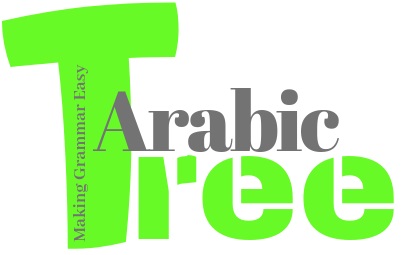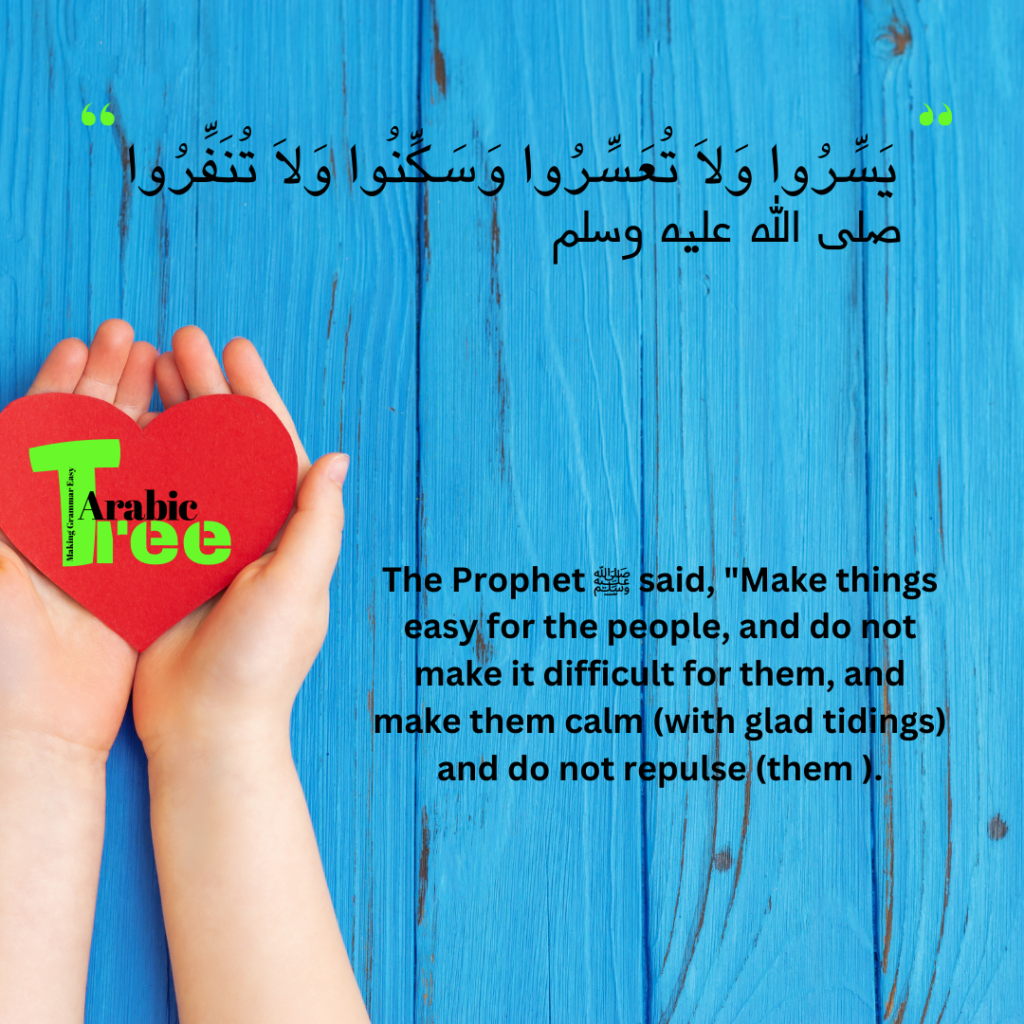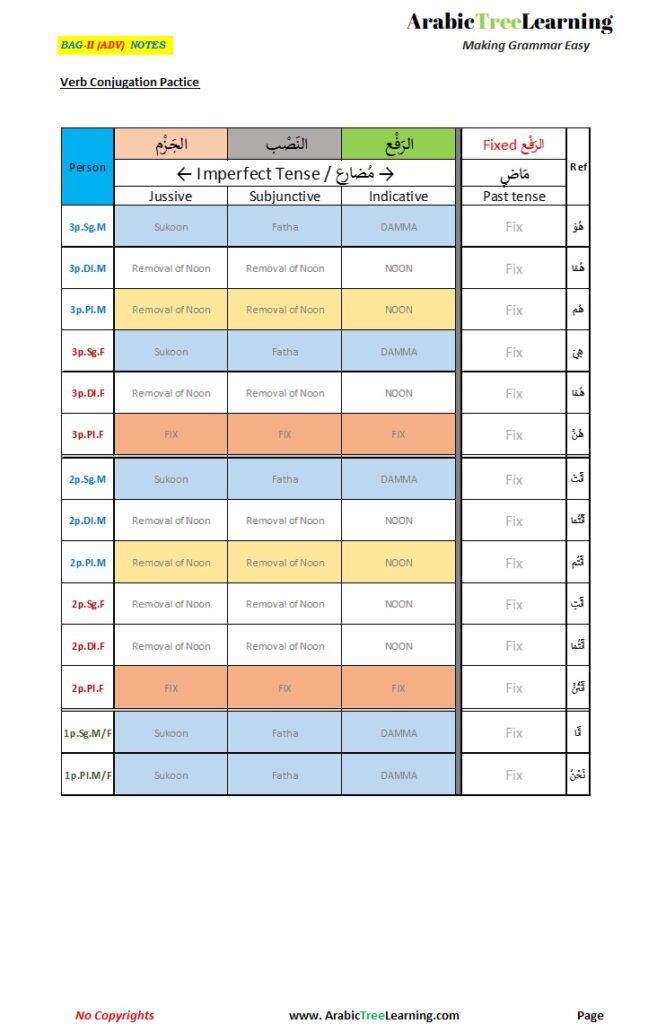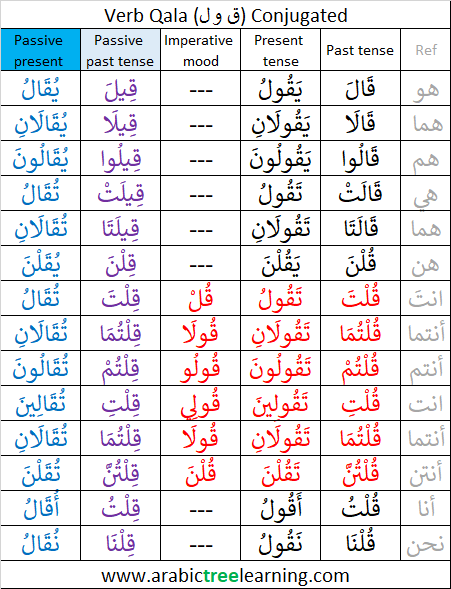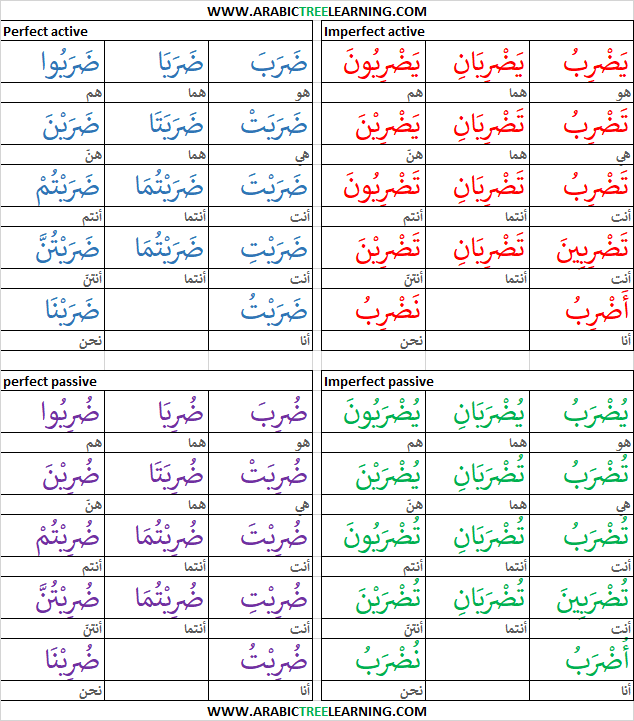Difference between ThUmma and ThAmma in arabic grammar.
Category Archives: Grammar
In Arabic, “iyya” is used to indicate exclusivity and emphasis. When combined with pronouns, it serves to focus attention on the subject or object of a sentence. For example, in the phrase “iyyaaka na’budu” (إِيَّاكَ نَعْبُدُ) from Surah Al-Fatiha (1:5), “iyyaaka” translates to “You alone” or “only You,” placing exclusive emphasis on Allah as the sole object of worship.
“Unlocking Mastery: Expertly Crafted Arabic Verb Conjugation Practice Sheet”
To get a FREE basic Arabic Grammar complete course contact us via Whats App 91-9324484053
فَلَمَّا جَاءَهُ وَقَصَّ عَلَيْهِ الْقَصَصَ جَاءَ So when he came to him and related to him the story (28:25) قُلْ مَنْ أَنزَلَ الْكِتَابَ الَّذِي جَاءَ بِهِ مُوسَىٰ جَاءَ Say, “Who revealed the Scripture that Moses brought (6:91)
- 1
- 2
